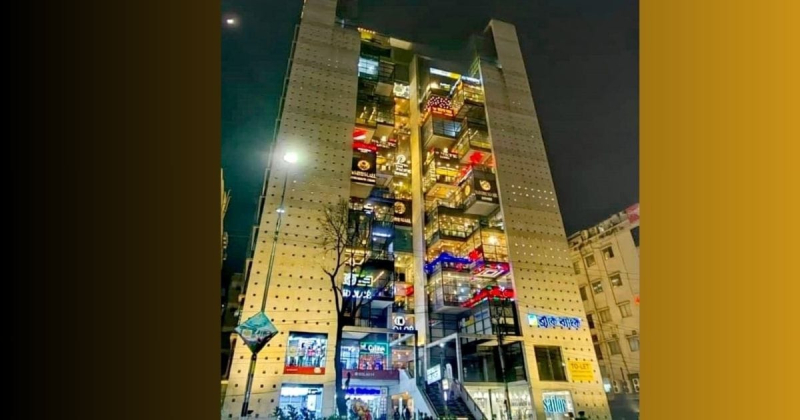- Bangladesh Heads to First Gen Z-Driven Competitive Poll |
- EC Lifts Mobile Phone Ban, Bars Photos Inside Booths |
- Youth participation vital to BD’s democratic future: C’wealth Group |
- Stocks retreat on week’s first trading day as turnover drops |
- Free education for girls up to honours if BNP wins: Zubaida Rahman |
Fire safety: How safe are the restaurants in upscale areas?

Fire safety: How safe are the restaurants in upscale areas?
Dhaka, Mar 04 - In the heart of Dhaka’s upscale neighbourhoods – Dhanmondi, Gulshan, and Banani – a burgeoning restaurant scene thrives within the confines of multi-storey buildings. This rapid expansion, however, brings to light grave concerns over fire safety practices, or the lack thereof.
Many of these dining establishments lack comprehensive fire safety measures, relying solely on elevators and a solitary staircase for emergency exits. This inadequate infrastructure places patrons and employees in a precarious position, with their safety hanging in the balance.
Conversations with residents of these areas shed light on these alarming realities, further underscored by the recent tragedy on Bailey Road, which has sown seeds of fear and apprehension among diners.
The indiscriminate sprouting of restaurants, many of which have been operating without fire safety licenses for years, exacerbates the risk. These establishments, often housed in structures originally intended for residential use, now serve commercial purposes, thereby complicating the fire safety landscape.
This issue is not confined to a few isolated cases; nearly every alley in these areas is lined with cafes and restaurants, with some buildings entirely dedicated to these businesses. The architectural design, characterised by an extensive use of glass, restricts the inflow of air, and in the event of a fire, leaves breaking the glass as the only means to combat the flames.
The structural layout presents further challenges for emergency evacuation. Narrow staircases, cluttered or locked, significantly hinder the ability of patrons to evacuate safely in case of an emergency, turning what should be a straightforward escape route into a potential trap.
The fear of fire is not an abstract concern for the residents of Gulshan and Banani. Moniruzzaman, a businessman from Gulshan, and Didarul Haq Sunny, another businessman from Banani, voiced their apprehensions about dining out in the post-Bailey Road fire era.
“There’s a prevailing fear of taking families to restaurants in the Gulshan-Banani area, as it’s unclear which establishments have fire safety measures,” Moniruzzaman said. Didarul mentioned ceasing restaurant visits after the Bailey Road tragedy, citing fire safety as a major concern.
Their concerns highlight a critical demand for Dhaka’s development authority, RAJUK, to enforce and oversee rigorous fire safety standards across all restaurants.
Professor Dr. Adil Muhammad Khan, President of the Bangladesh Institute of Planners (BIP), echoed these sentiments. He pointed to the widespread practice of converting entire buildings into dining spaces, enveloped in glass, which fundamentally compromises fire safety protocols. The aftermath of the Bailey Road tragedy has left a palpable sense of urgency among citizens and experts alike, calling for immediate action from RAJUK and other relevant authorities to mitigate the risk of future incidents.
Dr. Adil advocated for detailed inspections of fire safety equipment, such as fire extinguishers and alarms, and insisted on comprehensive safety audits for all multi-storey and specially purposed buildings.
Despite existing regulations mandating two staircases in buildings, the reality on the ground reveals a stark misuse of these provisions, with designated fire exits often repurposed as storage areas. This blatant disregard for safety norms necessitates a stringent enforcement of building codes and fire safety regulations.
RAJUK Chairman, Anisur Rahman Mia, acknowledged the challenges at hand, committing to a series of actions aimed at identifying and rectifying establishments lacking in fire safety measures. He drew attention to the widespread issue of illegal commercial activities within residential buildings, underscoring RAJUK’s dedication to enforcing legal and safety standards.
With over 517,000 buildings under its jurisdiction in Dhaka, of which only 200,000 are approved, RAJUK faces a daunting task. An astonishing 90% of the approved buildings deviated from their original designs, complicating the enforcement of fire safety and building codes, the public agency says.-UNB

